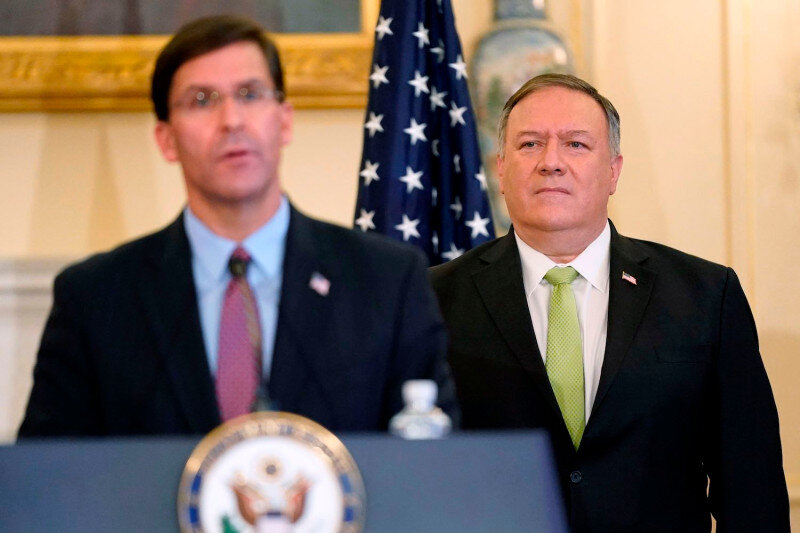Atlantic Council: New U.S. sanctions ‘more window dressing’

TEHRAN – In a report on Wednesday, the Atlantic Council described the new round of U.S. sanctions against Iran as “more window dressing than anything of strategic import”, as Iran’s banking sector was already subject to a substantial level of sanctions.
“Instead, the sanctions may be more directed at creating difficult conditions for the resumption of the Iran nuclear deal under a potential Joe Biden administration. However, that is not to say that there will be no impact,” the report said.
“Secondary sanctions now apply to all large Iranian banks—only primary sanctions had applied to these banks before under a separate sanctions executive order. This may seem like a major escalation, but most international trade with Iran was already subject to secondary sanctions in practical terms, so the effect of those newly relevant secondary sanctions is likely to be limited,” it added.
The report noted that Iran’s activity was already subject to secondary sanctions, so this action will do nothing to curb Iran’s ballistic missile development.
It came after the Trump administration announced it had imposed new sanctions on Iran’s financial sector in defiance of Washington’s European allies who warned of the humanitarian consequences of the sanctions on Iran’s fight against the coronavirus.
The new sanctions target the few remaining Iranian banks which were not subject to secondary sanctions.
In a tweet, U.S. State Secretary Mike Pompeo announced that the United States is sanctioning 18 major Iranian banks and identifying Iran’s financial sector.
The move will further deprive “the Islamic Republic of Iran of funds to carry out its support for terrorist activities and nuclear extortion that threatens the world,” Pompeo alleged.
“The wild card in assessing impact, though, is the chilling effect that specific sanctions like these may have on all transactions with these banks, including the trade that is exempt from sanctions or authorized,” the Atlantic Council said.
“The United States has secondary sanctions that target financial messaging services to banks that have been sanctioned,” it said, adding, “Not having access to the Society for Worldwide Interbank Financial Telecommunications (SWIFT) can make communications more difficult for banks, but is not crippling, especially for banks that have been subject to sanctions for so long.”
The report further said, “All in all, the above hardly seems ‘crippling’ or indicative of impending economic collapse. Instead, the real goal with this action may have been to appease those in Congress calling for tougher action and to complicate any attempt by a prospective Biden administration to re-enter the Joint Comprehensive Plan of Action (JCPOA).”
Meanwhile, Iran’s Foreign Minister Mohammad Javad Zarif has said the United States is seeking to blow up Iran’s remaining channels to pay for food and medicine.
“Amid Covid19 pandemic, U.S. regime wants to blow up our remaining channels to pay for food & medicine,” Zarif tweeted on October 8. “Iranians WILL survive this latest of cruelties.”
The new U.S. move is part of the Trump administration’s “maximum pressure” campaign against Iran, which Trump adopted after he unilaterally pulled the U.S. out of the 2015 nuclear agreement in May 2018.
MH/PA
Leave a Comment